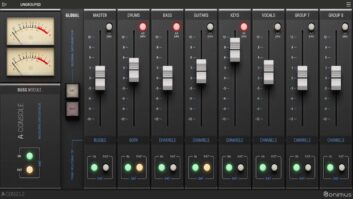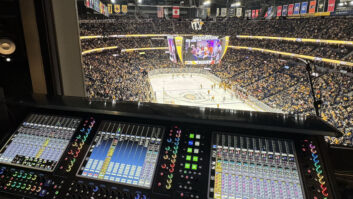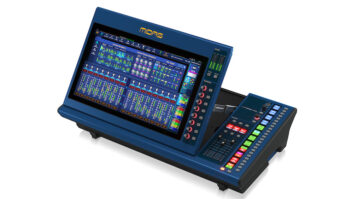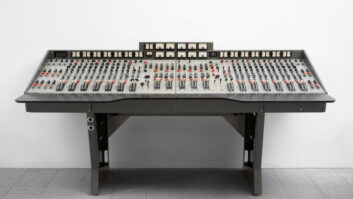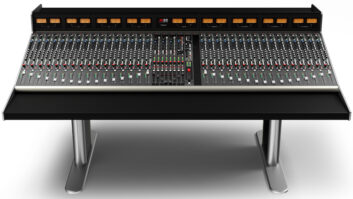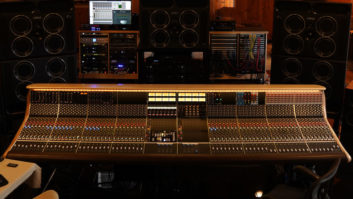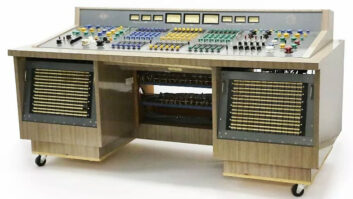BANGOR, MAINE – NOVEMBER 2008: The New England School of Communications (NESCOM) awards Associate and Bachelor Degrees to one hundred undergraduates a year in concentrations ranging from audio engineering to marketing communications, and from live sound engineering to video production. The school’s expansive facility boasts seven fully-appointed control rooms with all the latest gear and technologies, in addition to a fully-appointed live truck and a brand new 500-seat theater complex. To stay current, the faculty conducts a console search every year, such that no console is older than approximately five years. Their most recent search turned up API’s new 16-channel 1608 small-frame console with a 16-channel expander.
“We’re always looking for the best of the best,” said Dave MacLaughlin, executive director of audio. “These days, most of our students come into the program with ears that are accustomed to the sound of digital audio. They read stories written by people of my generation that discuss the ‘analog sound,’ but they don’t really get it. Why use analog when digital is so much more convenient? It takes hearing the sound of a real high-end console for them to truly understand.”
NESCOM’s API 1608 joins several racks of outboard gear and a 24-track RADAR recording system in Control Room A, known to the students as the Jungle Room. The console incorporates API’s discrete electronics topology and is built to the same exacting standards as the flagship Vision and Legacy Series consoles. The standard 1608, with sixteen input channels, eight buses, eight aux sends, eight reverb returns and full center section facilities, includes a dozen 550A three-band equalizers and four 560 ten-band graphic EQ modules with space available for eight additional 500 Series modules.
The faculty at NESCOM were happy with the 1608’s logical workflow from a production standpoint. “It’s hard for students to understand signal flow without being able to see it,” explained MacLaughlin. “The transparent topology of the 1608, starting with mic preamp controls just above the faders (instead of being buried somewhere!) make it easy for students to understand what’s happening between the input and the output. They can then transfer that understanding to more convoluted consoles or digital mixing environments.”
Because the 1608 conforms to API’s 500-Series modular paradigm, which has been adopted by over two-dozen companies, instructors and students are free to switch out modules to quickly appreciate the “sounds” of different manufacturers.
But apart from all its nice features, the faculty and students at NESCOM are most impressed by the API 1608’s peerless sound. “As soon as they hear audio coming out of the 1608, they get it,” laughed MacLaughlin. “It’s amazing. I’ve worked on everything: SSL, Neve, Trident… and API has a sound that you just can’t get with anything else. Whether we’re recording or mixing, it’s almost impossible to make a mess. Things just sound good!”
Students enrolled in instructor Doug Hoyt’s AET 210 course are currently using the 1608 to record and mix a band over the duration of the semester. “Honestly, the difficult part is keeping other students away from it,” admitted MacLaughlin. “There’s certainly an excitement about the 1608 at NESCOM!”
ABOUT API AUDIO Automated Processes, Inc. remains the leader in analog recording gear, with the Vision surround production, Legacy series, and 1608 recording consoles, and the classic line of modular signal processing equipment. www.apiaudio.com
PHOTO CAPTION Dave MacLaughlin (left), executive director of audio, New England School of Communications (NESCOM) and AET 210 instructor Doug Hoyt enjoy the benefits of the facility’s new 1608 small-frame console with a 16-channel expander.
